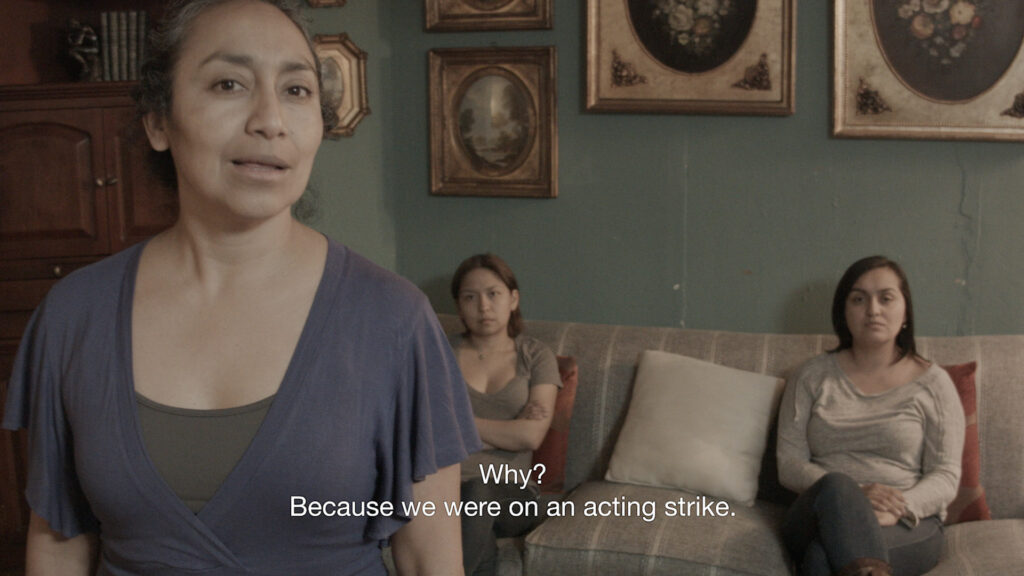At a remove from cinema’s and television’s alluring veneer, there exists an exploited class of worker hidden behind the scenes. In Amateurs, Stars and Extras or the labor of love, Marwa Arsanios provides an inversion of this dynamic, casting ‘amateurs’ and ‘extras’ as central characters.
Meanwhile, Have you Ever Killed a Bear or Becoming Jamila exposes the labour of performance through an examination of Algerian freedom fighter Jamila Bouhired and her representation in the 1966 film The Battle of Algiers.

Amateurs, Stars and Extras or The Labor of Love
At a remove from cinema’s and television’s alluring veneer, there exists an exploited class of worker—relegated to the margins or hidden behind the scenes. In Amateurs, Stars and Extras or the labor of love, Arsanios furnishes us with an inversion of this dynamic in which she casts ‘amateurs’ and ‘extras’ in the roles of central characters. And like them, a group of domestic workers, whose care-work is often rendered invisible, is also brought to the fore to become central to the project. In Amateurs, Stars and Extras , migrant workers—most of them women of colour—come to embody something beyond displacement or exploitation as subtle but no less trenchant forms of resisting the performance of labour are proffered. —Tendai John Mutambu

Have you ever killed a bear or becoming jamila
Have you Ever Killed a Bear or Becoming Jamila exposes the labour of performance, namely: the work of portraying a historical subject who became an emblem of resistance. In this portrait of the Algerian freedom fighter Jamila Bouhired, Arsanios brings into play this radical figure’s representation in Gillo Pontecorvo’s 1966 film The Battle of Algiers and her assimilation and promotion through the Arab cultural magazine Al-Hilal. From the history of socialist projects in Egypt, anti-colonial wars in Algeria, and their relationship to feminism, Becoming Jamila examines the marginalisation of women in the public sphere and how certain historic moments of conflict, like the Algerian war, ushered in exceptions to this age-old form of gendered repression. —Tendai John Mutambu

